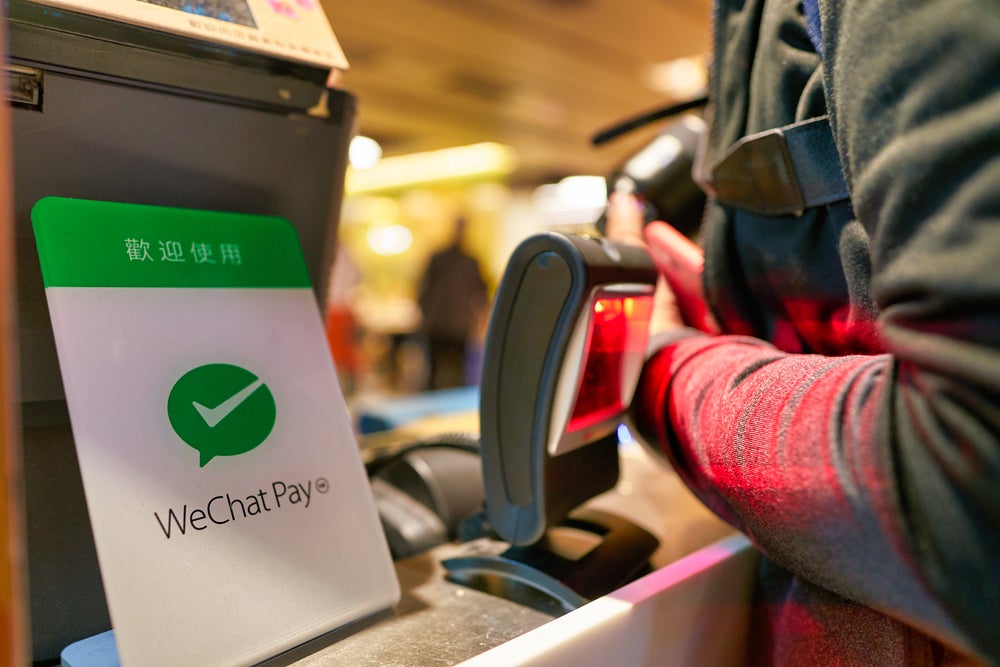
One of China’s biggest mobile payment platforms, WeChat Pay, is apparently cooperating with several national financial institutions to further promote openness and interoperability among the digital payment industry. The news comes as regulators have urged private financial service providers in China to open up their platforms or face penalties.
According to Chinese media, WeChat will work together with several central-bank-backed financial institutions to promote a more open payment ecosystem. The partners mentioned include the Industrial and Commercial Bank of China, China Construction Bank, Bank of China, Bank of Communications, Ping An Bank and CITIC. On a local level, the Bank of Xi’an, Bank of Hangzhou and Tonglian Pay have also joined the list.
In addition Tencent, WeChat’s parent company, has extended its partnership with Cloud QuickPass – the mobile payment service of state-backed UnionPay – which was first announced in September. The cooperation enables QuickPass users to make payments by scanning WeChat Pay’s QR codes. Equally, it gives WeChat Pay users the same option with QuickPass codes.
According to the latest development, QuickPass payment is now supported on several Tencent services, including its music and video streaming apps. In addition, WeChat users can now use QuickPass on several external services, such as JD.com’s ecommerce platform and beverage companies Luckin Coffee and Nayuki’s Tea, which are accessible directly through WeChat’s mini-program.
The mini-program or mini-applications feature was first launched in January 2016 and is best described as “apps within the app”, enabling users to access other platforms without downloading their apps separately.
How well do you really know your competitors?
Access the most comprehensive Company Profiles on the market, powered by GlobalData. Save hours of research. Gain competitive edge.

Thank you!
Your download email will arrive shortly
Not ready to buy yet? Download a free sample
We are confident about the unique quality of our Company Profiles. However, we want you to make the most beneficial decision for your business, so we offer a free sample that you can download by submitting the below form
By GlobalDataThis in-built feature makes WeChat a so-called “super app” as it has resulted in the introduction of thousands of mini-programs within WeChat across a multitude of industries, from social media to gaming, food delivery, ride-hailing and more. These apps sit on Tencent’s server and not on the programmers’ and are therefore usually very fast to access and operate.
Because WeChat essentially functions as a platform for everything, it has become the world’s largest standalone app and an indispensable feature in the daily lives of over 1 billion Chinese users. This has made it a subject of envy for many digital platforms worldwide trying to replicate its “super app” model. However, WeChat’s dominance in the market has recently come under increased scrutiny.
Chinese regulators have made an aggressive push urging big tech companies to terminate monopolistic practices. This includes opening so-called walled gardens that, for years, blocked users from accessing payment services from rival companies.
For instance, ecommerce platform JD.com, which is backed by Tencent, has WeChat Pay as its default payment option. In return, Alibaba’s ecommerce platform, Taobao, only accepts its own payment service, Alipay.
In September, China’s Ministry of Industry and Information Technology (MIIT) issued an ultimatum to internet companies to open up their walled gardens and allow rival links and payment services on their sites or risk regulatory action.
“The development of the Internet must be able to make people’s lives more convenient, facilitate the development of all aspects, and ultimately promote the healthy and orderly development of the internet industry and platform economy,” said Xiao Yaqing, China’s Minister of Industry and Information Technology at a press conference.
.
Soon after, Alibaba started allowing WeChat Pay on several of its platforms, initiating the breakdown of its walled gardens. Prior to that, WeChat began allowing links to rival platforms to be shared in one-to-one chats.
Tencent currently sits at number 16 on GlobalData’s thematic scorecard for social media companies. It performs well in areas such as digital payments, gaming and digital media but is being held back by its poor performance in areas such as data privacy and antitrust regulations.






